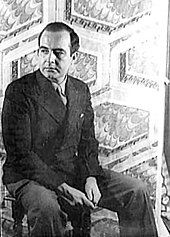Best_Classical_Contemporary_Composition
Grammy Award for Best Contemporary Classical Composition
Honor presented to composers for quality contemporary classical music compositions
The Grammy Award for Best Contemporary Classical Composition is an award presented at the Grammy Awards, a ceremony that was established in 1958 and originally called the Gramophone Awards,[1] to composers for quality works of contemporary classical music. Honors in several categories are presented at the ceremony annually by the National Academy of Recording Arts and Sciences of the United States to "honor artistic achievement, technical proficiency and overall excellence in the recording industry, without regard to album sales or chart position".[2]
| Grammy Award for Best Contemporary Classical Composition | |
|---|---|
| Awarded for | Quality contemporary classical music compositions |
| Country | United States |
| Presented by | National Academy of Recording Arts and Sciences |
| First awarded | 1961 |
| Currently held by | Kevin Puts for Contact (2023) |
| Website | grammy.com |
The award was first presented in 1961 to Aaron Copland for his Orchestral Suite from The Tender Land Suite. It was not presented from 1967 to 1984. The Grammy is awarded to the composer(s) and the librettist (if applicable) of a classical piece composed in the last 25 years, and released for the first time during the eligibility year. The performing artist, orchestra, ensemble, etc., do not receive a Grammy (except if the performer is also the composer). Since its inception, the award has had several minor name changes.[lower-alpha 1]
Composers John Adams, Samuel Barber, John Corigliano and Jennifer Higdon are tied for the most wins in this category, with three each. Multiple composers have won twice: Michael Daugherty, Krzysztof Penderecki, Christopher Rouse and Igor Stravinsky. In one year, 1962, the award was given to two composers, Laurindo Almeida and Stravinsky.









- From 1961 to 1962 the award was known as Best Contemporary Classical Composition
- In 1963 it was awarded as Best Contemporary Composition
- In 1965 it was awarded as Best Composition by a Contemporary Composer
- In 1966 and 1964 it was awarded as Best Composition by a Contemporary Classical Composer
- In 1985 it was awarded as Best New Classical Composition
- From 1986 to 1994 it was again awarded as Best Contemporary Composition
- From 1995 to 2011 it was again awarded as Best Classical Contemporary Composition
- In 2012 the category was renamed into Best Contemporary Classical Composition
- "Grammy Awards at a Glance". Los Angeles Times. Archived from the original on March 9, 2012. Retrieved April 24, 2010.
- "Overview". National Academy of Recording Arts and Sciences. Archived from the original on January 3, 2011. Retrieved April 24, 2010.
- "Grammy Awards Winners & Nominees for Best Classical Contemporary Composition". The Recording Academy. Retrieved 21 August 2021.